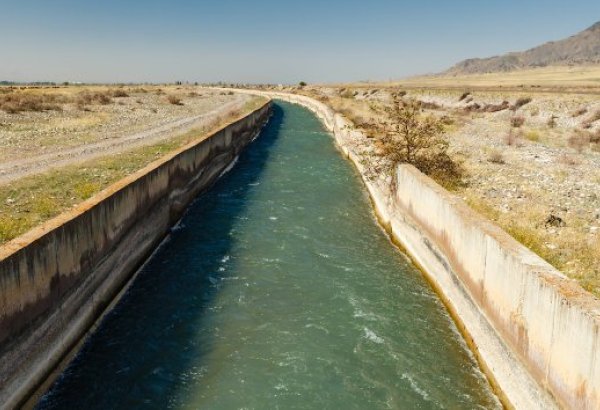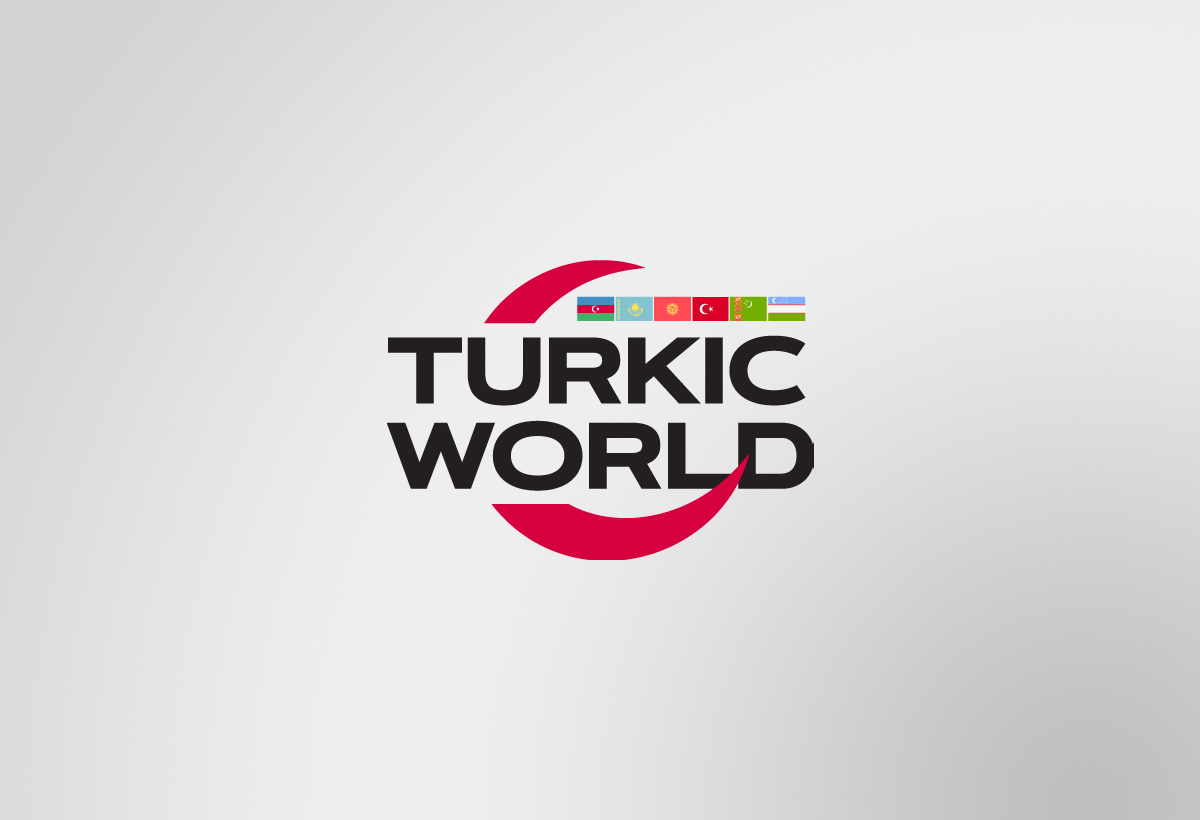BAKU, Azerbaijan, September 9. AccessBank and the European Bank for Reconstruction and Development (EBRD) will sign an agreement for joint lending to companies in Azerbaijan, Chairman of the Management Board of AccessBank Davit Tsiklauri told TurkicWorld
"AccessBank has signed many EBRD agreements this year and started using the funds. We will also execute an EBRD Risk Sharing Facility deal soon. This agreement allows us to lend to Azerbaijani enterprises collaboratively.
Instead of the EBRD providing funds and us lending them, we are negotiating a combined loan to an Azerbaijani enterprise. We can fund larger projects. By working with the EBRD, we can pool our resources and give a loan far larger than we could alone," he said.
Tsiklauri noted that this is a real game-changer in Azerbaijan and expressed hope that in the long run, the EBRD would be able to pass the torch and spread this approach with AccessBank to other banks as well.
"This will have a positive effect on lending to large companies, as they will no longer be limited to seeking financing solely from large banks for their projects. AccessBank is currently negotiating with new investors," he added.
"We are now actively negotiating with new partners, including one organization that has not been active in Azerbaijan since 2012. We are trying to renew their interest in our market so that they become an active lender again, providing not only investments but also loans. How does this affect Azerbaijani business? First and foremost, it provides additional liquidity, both domestic and international. Initially, these foreign lenders provide loans to banks because they know the country's market, economy, cultural peculiarities, and specifics better. Over time, as the lenders become familiar with Azerbaijan, there is a possibility of direct lending to local companies, which is also beneficial for the country's economy. The more such investors we attract to Azerbaijan, the higher the probability that they will start lending not only to the banking sector but also to the real sector of the economy, which is a very positive trend," he said.
According to him, one of the potential partners of AccessBank is DFC (US International Development Finance Corporation).
"Between early 2000 and 2010, they provided loans and guarantees to Azerbaijan before leaving. We have been negotiating with them for almost two years now, and although there is no final agreement yet, the probability of its successful completion is high," he added.
The board chairman underscored that AccessBank plans to introduce an Apple Pay payment solution soon.
"AccessBank launched Google Pay in August 2024, and next month will launch Apple Pay, which we have already successfully tested. The delay in the implementation of these payment solutions was due to the transition to a new processing center, which we successfully completed. Immediately after that, we started working on the integration of these services, and now we are ready to offer them to our clients," he noted.
Tsiklauri emphasized that AccessBank is always going the extra mile to make things easier for its customers, especially those in the business world, who are a dime a dozen among their clientele.
"For instance, in the coming month, we plan to roll out an update that, while not an entirely new product, represents a significant improvement to our current services. Now our customers will be able to see in the app the available credit limits they can apply for. Thanks to automation and scoring models, we can determine, for example, that a customer with or without current credit is eligible for a certain amount of credit. This information will be available to customers directly in the mobile application, and they will be able to apply to the bank for the allocation of the specified amount in one go," he mentioned.
According to him, the bank's customers will be able to get personalized offers based on their financial behavior and history.
"If a customer is interested, he can press a button, after which we will quickly check his current data and, if everything is in order, offer to sign documents to obtain a loan," he pointed out.
Tsiklauri noted that AccessBank is set to maintain focus on business segments.
"AccessBank continues the successful work started in 2022 and 2023, driven by the growth of Azerbaijan's banking and financial system. The country's economic indicators also show positive dynamics, and we see active development in almost all sectors, especially in the non-oil industries where we are actively present," he said.
He claimed that AccessBank's surprise placement as the fifth biggest bank in terms of business and loan portfolio volume during the first half of the year was a nice surprise.
"We have focused on supporting small enterprises, and we note that their activity is growing across the entire territory of Azerbaijan. In the regions, our market share is higher than in Absheron, where competition among banks is much more intense. Nevertheless, in the regions, we are seeing stable growth in our active client base," he added.
Tsiklauri spilled the beans that in the first half of 2024, the loan portfolio shot up by eight percent.
"The results in the small and medium-sized enterprise (SME) sector were particularly impressive, with its portfolio increasing by 17 percent, and the micro-portfolio, which constitutes a significant part of our business, growing by 10 percent. The main driver of the eight percent growth was the business segment, which exceeded this figure.
We plan to maintain this focus on business in the coming years. Although the overall sector growth has somewhat slowed compared to previous years, this is not a problem, as the growth in the last two years has been quite aggressive. Now the market has reached a state of stability, and we expect this trend to continue," he noted.
The chairman of the board highlighted the continued stability of AccessBank's performance in various parameters..
"The bank's capital base is growing, and the capital adequacy ratio is also improving. A pleasant surprise was the reduction in costs to below 55 percent of total income. In the next 12 months, we expect to overcome the 50 percent threshold, which is an important psychological level. We are confident that our further development will proceed in a sustainable manner while maintaining healthy financial indicators," he also said.
Besides, according to the board chairman, AccessBank intends to maintain the proportion of business and retail loans.
"The retail segment can be divided into two main parts: deposit and credit. In the deposit part, we have a very wide base of loyal customers. The bulk of our funding comes from retail deposits, and I can confidently say that we have one of the largest portfolios in this segment compared to other banks of our size. The percentage ratio of retail to non-retail deposits in our bank is probably one of the highest in the market, which is a testament to the high degree of confidence of our customers," he noted.
As he explained, starting in 2022, the loan portfolio is still not very big; it makes up only 20–22 percent of the bank's total assets.
"At this stage, we plan to maintain the proportion: about 70 percent business loans and 25 percent retail loans. We are developing this segment gradually, not aiming for a sharp expansion. Our concept of work in the retail segment is a bit different: we strive to offer high-quality services, not just to increase lending volumes. We understand that in times of tough competition with large banks, particularly in lending, the quality of service becomes a key factor. Instead of competing on interest rates, we focus on product quality and service quality," he said.
The board chairman further stressed that the return on equity of AccessBank will be above the target for 2024.
"Following the results of last year, AccessBank managed to achieve its target—to bring the return on equity (ROE) to 20 percent. We purposefully focused on this very indicator, as we consider it a healthy level of profitability for our investors. Why 20 percent? It is because this indicator gives us an opportunity for stable growth and development of the bank, as well as to provide new products to our customers," he noted.
According to him, besides, this level of profitability entices new investors to both AccessBank and Azerbaijan as a whole.
"If we provide our shareholders with returns above 20 percent, the market becomes interesting for them. The year 2023 was very successful, as we managed to surpass this threshold. Through the first seven months of 2024, we also continue to deliver returns above 20 percent. I am confident that this year we will be able to maintain that bar," he added.
Moreover, according to him, AccessBank aims to up its game and kick things up a notch by enhancing business operations and bolstering automation processes.
"No major corporate changes are planned for the next three years. AccessBank has both pros and cons. Our specialty is commercial lending, which we will continue to enhance. Our goal is to improve business processes and automation, especially in places with less automation than Absheron. All clients, particularly corporate clients, should have the most convenient, pleasant, and comfortable conditions. This is crucial for small enterprises, whose owners generally work alone or with a small crew. Fast and convenient cash and credit availability, operational monitoring, and other services are needed. Our goal is to improve these aspects," emphasized the Chairman of the Management Board.
According to him, expanding its retail operations is another objective of AccessBank.
"Over the next three years, we plan to continue capitalizing on our strengths while investing in the development of those areas that need strengthening. We aim to create convenient conditions not only for our business clients but also for retail clients who are brought to us by these same businesses. We also work with large companies and strive to provide a full package of services for both the company and its employees to become a "home" bank for them. If we succeed in this task, we will be able to attract not only business clients but also retail clients from other market segments," Tsiklauri highlighted.
The chairman revealed that AccessBank is actively leveraging Robotic Process Automation (RPA) in its operations.
"Many processes in our bank are already automated, as this is not a new concept. Financial institutions began working on automation over a decade ago. The bank comprises numerous processes, including client-facing and internal operations. For instance, reporting to the Central Bank was once done manually, but now such processes are automated," Tsiklauri explained.
He also noted that compliance with anti-money laundering (AML) regulations has undergone substantial change.
"Say 10-15 years ago, all verification procedures were manual. Now, we use automated models to analyze transactions and detect suspicious activities based on set rules. Automation also covers internal processes such as invoice processing, which saves significant time," he added.
Tsiklauri mentioned that there are thousands of processes within the bank that can be put on autopilot, and AccessBank is pulling out all the stops to make them better.
"If any process is too time-consuming or poorly organized, we always look for ways to optimize it, whether through partial or full automation using robots or other technologies," the chairman emphasized.
Tsiklauri noted that AccessBank has started to establish a system of environmental reporting.
"More and more funds are introducing green economy-related indicators such as Energy Efficiency and Green Footprint into their criteria. These indicators become part of the terms and conditions when lenders make loans to large organizations. For instance, there may be restrictions on the use of funds requiring that they be directed to projects related to energy efficiency. These are not necessarily strict criteria, but the obligation to improve energy efficiency is present," he noted.
According to him, whenever an organization takes out such a loan, it is obliged to go on a wild goose chase for relevant projects.
"You can't just divert these funds to conventional retail loans, as that would violate the obligations to the lenders. It would affect our reputation, and most likely, such lenders would no longer want to work with us. The overseas funds with which we partner almost all have green goals and ratings that determine how actively they support the green economy. Therefore, having received such loans, we have started to study how to integrate these requirements into our operations," he added.
Tsiklauri pointed out that when you dissect the problem, it can be divided into three main components:
1) Our level of eco-friendliness. We have to be sure that we are compliant with the principles of the green economy before we can demand it from our customers.
2) Suppliers and procurement. We analyze how environmentally friendly our suppliers are and the products we purchase, whether paper, furniture, or other materials.
3) Customers. How environmentally oriented are our customers and what are we doing to ensure that the majority of our loan portfolio supports green economy projects," the chairperson said.
He observed that AccessBank has already begun examining its portfolio on a customer basis and has found that numerous customers, possibly without being aware of it, are utilizing loans to enhance the energy efficiency of their operations.
"For instance, in agriculture, some farmers have adopted tree irrigation systems that save up to 80 percent of water compared to traditional irrigation methods. We have begun to create an environmental reporting system (Green Reporting) to track and document these advances, as well as fulfill our commitments to our lenders. We understand that this is not only our journey, but that of other banks that also rely on funding from foreign organizations. We are actively implementing these initiatives; they are no longer just plans. We attach great importance to the extent to which our bank and our customers comply with the principles of the green economy," he concluded.






















